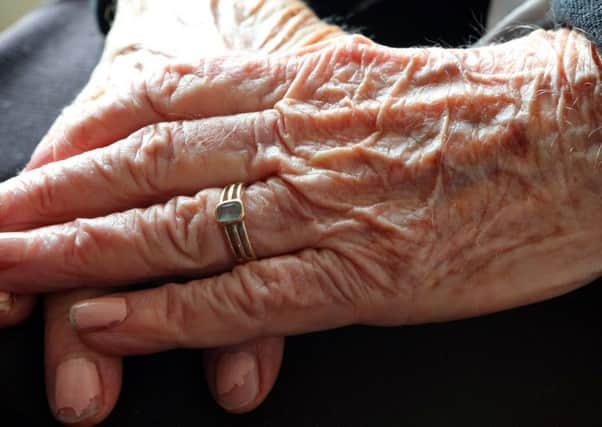Son loses court battle to care for elderly mother at home


The man was seeking enduring power of attorney to look after his 83-year-old mother, claiming that keeping her in residential facilities would lead to a “slow death”.
But rejecting his case, a judge instead granted a health trust’s application for the widow to remain in specialist 24-hour accommodation.
Advertisement
Hide AdAdvertisement
Hide AdMrs Justice Keegan ruled: “It is entirely unrealistic to think that given her needs (she) could be looked after in the community.”
The 83-year-old mother of four, referred to as NS, was described as a previously independent woman heavily involved with voluntary organisations and the church.
But following the death of her husband in 2009 she suffered a series of health difficulties, culminating in a diagnosis of probable dementia.
Opposed to a care package, she had been managed at home with the support of family, friends and a neighbour.
Advertisement
Hide AdAdvertisement
Hide AdHowever, the situation changed when a daughter who stayed with her up to five nights a week suffered a stroke in 2014.
By 2016 her son, MS, saw himself as his mother’s primary carer.
In May last year she was admitted to hospital suffering from a suspected lack of oxygen to the brain and delirium.
Following treatment the court had to decide whether NS should be discharged to a residential facility or to her son with a care package.
Advertisement
Hide AdAdvertisement
Hide AdMedical experts cited a pre-exisiting diagnosis of dementia and stated that she lacked capacity to make the decision for herself.
A social worker also referred to the risks to NS due to her condition, claiming she required 24-hour residential care.
Representing himself, MS argued that being at home was not harming his mother, and insisted that she should be allowed to attend court to express her own views.
At one stage he also alleged that she had been held unlawfully in trust care for 216 days.
Advertisement
Hide AdAdvertisement
Hide AdHe claimed this was forced against her will and asked the trust pay £5.8m immediately.
The man urged the court to conclude that she should come home.
But Mrs Justice Keegan backed submissions on behalf of the trust that NS is not getting better and requires suitable care.
In a newly published judgment, she acknowledged it was an emotional issue affecting many families but stressed the need to base her decision on the facts and medical evidence about a vulnerable elderly lady.
Advertisement
Hide AdAdvertisement
Hide Ad“I accept that she was a vibrant woman who lived independently and contributed to the community,” the judge said.
“I also accept as a basic principle that it would be best if NS could live out her latter years at home.”
Granting the declaratory relief sought by the Trust, she said she was satisfied the necessary checks had been made at the residential home.
Mrs Justice Keegan emphasised how the pensioner’s condition has deteriorated, potentially leading to her requiring oxygen and specialist nursing care in future.
She added: “I do not accept MS’s arguments about his ability to care for his mother.”